Directory
- Share
Alexander Horne
- Alumni
- Australia
- 2018 PhD Philosophy
- Trinity College
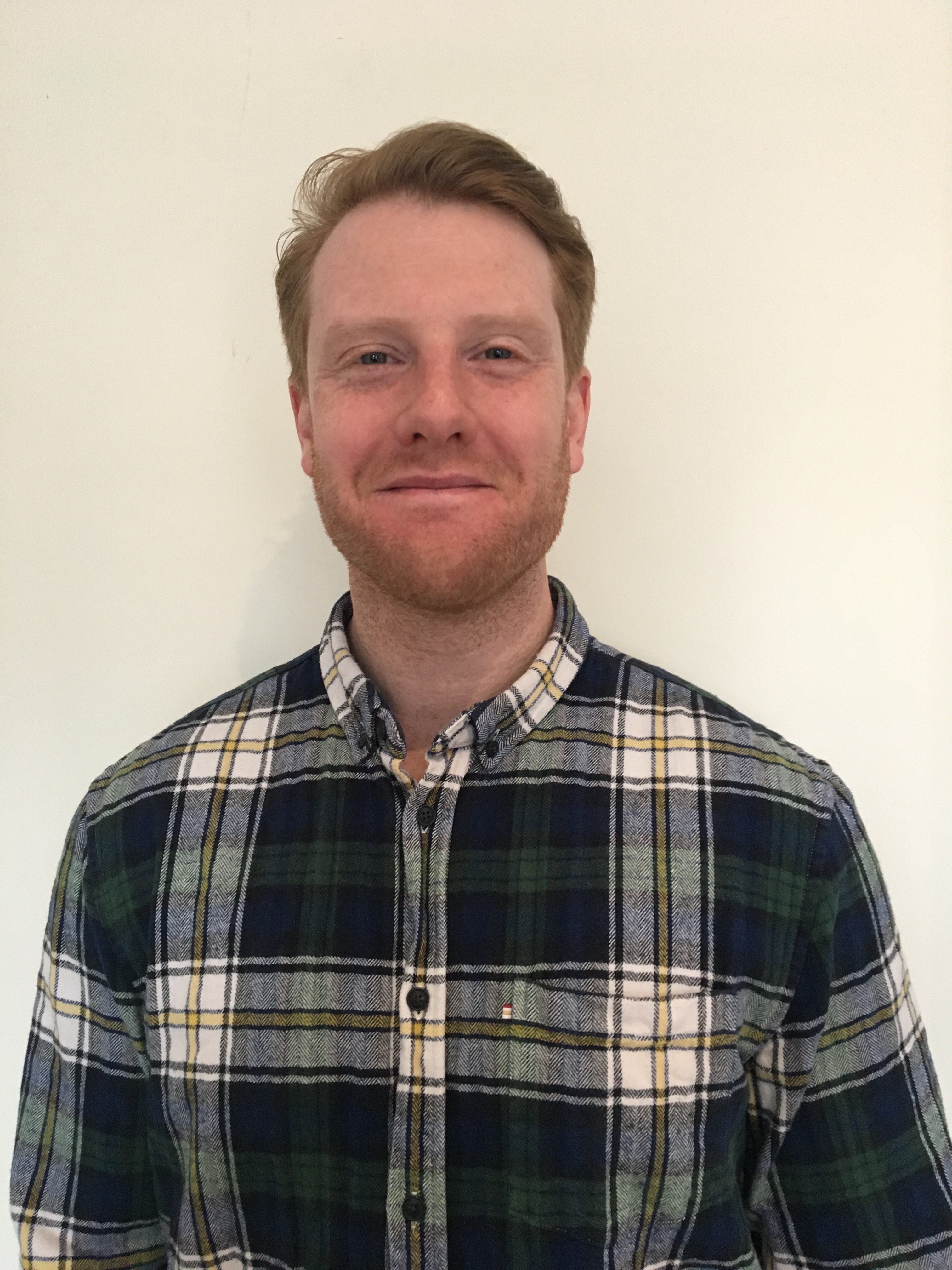
Alexander Horne
- Alumni
- Australia
- 2018 PhD Philosophy
- Trinity College
I studied philosophy and law at the University of Sydney. After finishing my undergraduate degrees, I completed a Master of Laws by research, also at the University of Sydney. In my research I asked how we should think about law, whether constructive interpretation was necessary and, if it was, whether it could generate truths. While completing my Master of Laws, I also worked as a lawyer at one of Australasia’s top law firms and volunteered with the Refugee Advice and Casework Service, the National Children’s and Youth Law Centre and Salvos Legal Humanitarian. This year, I have been studying for my MPhil in Philosophy at Cambridge. My current research is about reasons, personality, luck, choices and justice. I will continue that research in my PHD, asking questions about the relationships between normativity and the self, choice and identity, and luck and responsibility. I hope to use my research to develop a framework for thinking about the choices that matter from the perspective of distributive justice. I am immensely grateful to Gates Cambridge for giving me the opportunity to pursue my research and for inviting me to join such a wonderful community of scholars.
Previous Education
University of Sydney
University of Cambridge
Megan Hough
- Alumni
- United States
- 2016 MPhil Nuclear Energy
- Lucy Cavendish College
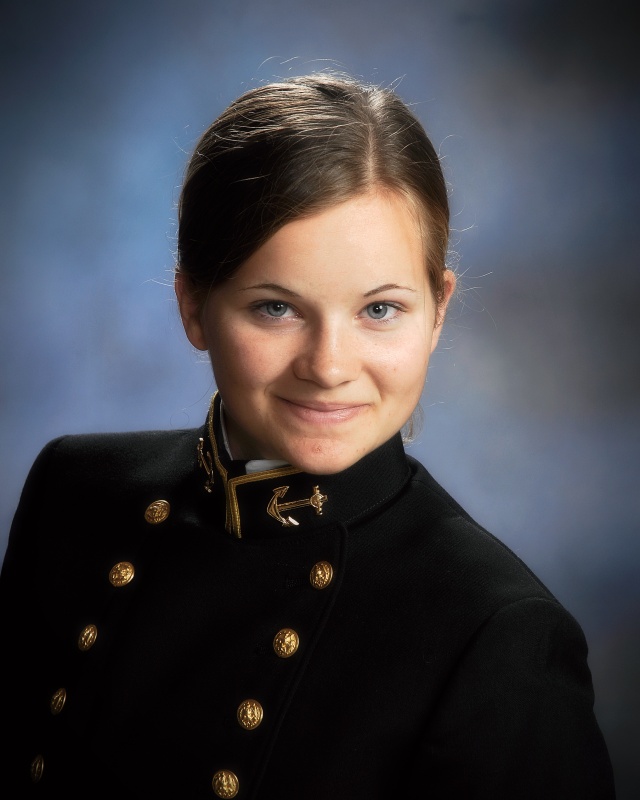
Megan Hough
- Alumni
- United States
- 2016 MPhil Nuclear Energy
- Lucy Cavendish College
Growing up in a military family, I knew from a very young age that I wanted to serve in the military. I followed this dream and my passion for engineering to the United States Naval Academy where I studied nuclear engineering. Upon graduation, I was commissioned to serve in the submarine community. I am fortunate enough to continue my education at Cambridge University where I plan to study Nuclear Energy. My research interests include developing new technologies to improve the reliability, efficiency and safety of nuclear reactors, as well as promoting engineering education. In my career, I hope to combine technical and operational expertise learned from the operation of nuclear power plants in the submarine environment to promote the safe use of nuclear energy as a reliable green technology. As a woman in the nuclear engineering field, I hope to inspire girls to pursue science, technology and engineering careers. I am incredibly honored to be a part of the Gates Cambridge scholar program and work together with young leaders dedicated to serving others.
Previous Education
United States Naval Academy
Emma Houiellebecq
- Alumni
- Canada, United Kingdom
- 2016 MPhil Engineering for Sustainable Development
2021 PhD Engineering - St John's College

Emma Houiellebecq
- Alumni
- Canada, United Kingdom
- 2016 MPhil Engineering for Sustainable Development
2021 PhD Engineering - St John's College
I have always been fascinated in how to approach complex problems. This fascination first led me to study Civil Engineering as an undergraduate, and Engineering for Sustainable Development as a graduate, where I was able to gain skills that would allow me to contribute to real challenges in the world. Over recent years, I have put these skills into practice while working with NGOs and the International Committee of the Red Cross in countries affected by disaster or conflict in southern and eastern Africa and the Middle East. During these experiences, I have seen how challenging it can be to respond to complex urban crises where, over time, the additional strain on services and the eventual degradation of public infrastructure compounds the likelihood of wide-scale public health crises. At Cambridge, my research will explore how to strengthen the resilience of essential infrastructure and services in fragile urban contexts which are faced by a convergence of protracted insecurity, climate risks, and environmental degradation. I am honoured to have been selected for a Gates Cambridge Scholarship and I look forward to joining a cohort of inspirational leaders and scholars who are contributing to real change in this world.
Previous Education
University of Cambridge Eng. for Sust. Development 2017
University of British Columbia Civil Engineering 2013
Clare Howard
- Alumni
- United States
- 2010 MPhil Biological Science
- Churchill College
Clare Howard
- Alumni
- United States
- 2010 MPhil Biological Science
- Churchill College
As an undergraduate neuroscience major at Amherst College I developed a deep interest is the field of early neurological development and, in particular, how the plasticity inherent in this period may be harnessed to create therapies for neurological disorders. I am looking forward to continuing my study of developmental neurobiology as an MPhil student at Cambridge in the lab of Dr. Andrea Brand, where I will be exploring the genetics underlying neural stem cell differentiation and how an understanding of these mechanisms may be used to unlock cells’ regenerative potential. I hope that this experience will provide me with a solid grounding in the basic molecular biology that governs stem cell transitions, giving me a strong background on which I will be able to build in my future work. After Cambridge, I plan to pursue a career as a physician-scientist studying neurodevelopmental disorders and working to translate basic scientific discoveries from the bench to the bedside.
Previous Education
Amherst College BA in Neuroscience 2010
Haley Howard
- Alumni
- United States
- 2022 MPhil Multi-disciplinary Gender Studies
- King's College
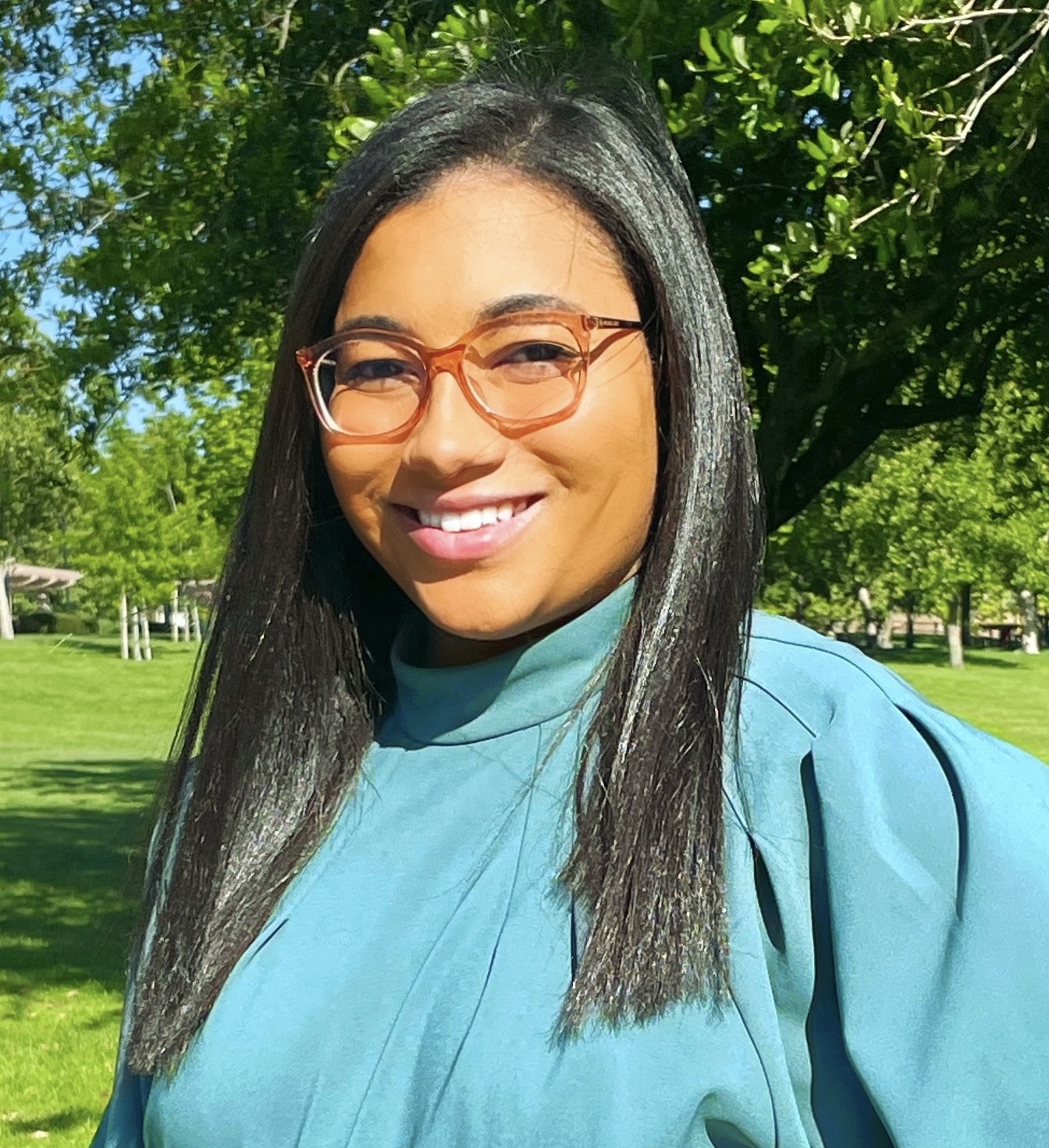
Haley Howard
- Alumni
- United States
- 2022 MPhil Multi-disciplinary Gender Studies
- King's College
I grew up in the San Francisco Bay Area and attended Santa Clara University. During my undergraduate studies, I earned a B.S. in Political Science and Ethnic Studies with a minor in Religious Studies. Through my courses and work as a research assistant, I became interested in using academia and scholarship to fight against the erasure of Black women’s narratives. As a student of Multi-disciplinary Gender Studies at Cambridge, I plan to continue this work by reexamining the Enlightenment with an expanded historiographical perspective to include those who have seldomly been uplifted as representations of the era: enslaved women. Ultimately, my objective is to explore how women with absolutely no social or legal control over their own bodies, minds, and spirits confronted an era centered around freedom and the pursuit of happiness. My hope is that this kind of archival excavation will help us address current international and personal traumas with policy solutions contextualized by historical circumstances. I am incredibly honored to have the opportunity to join the Gates Cambridge community and conduct research in an environment that prioritizes equity and global social change.
Previous Education
Santa Clara University POLI SCI & ETHN STDS 2021
Ian Hsu
- Alumni
- United States
- 2012 MPhil Social Anthropological Analysis
- King's College

Ian Hsu
- Alumni
- United States
- 2012 MPhil Social Anthropological Analysis
- King's College
I graduated with my MPhil in Social Anthropology from the University of Cambridge in 2013 and with my medical degree from the Johns Hopkins University School of Medicine. I completed residency training in Adult Psychiatry at Cambridge Health Alliance, and a fellowship in Consultation-Liaison Psychiatry at Columbia University Medical Center. I am interested social determinants of mental health and in improving psychiatric care for immigrants.
Previous Education
Johns Hopkins University 2014
University of Michigan Neuroscience 2009
Connie Hsueh
- Alumni
- United States
- 2015 MPhil Physics
- Churchill College
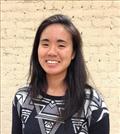
Connie Hsueh
- Alumni
- United States
- 2015 MPhil Physics
- Churchill College
Previous Education
California Institute of Technology
Johnny Hu
- Alumni
- United States
- 2011 MPhil Biological Science
- Darwin College
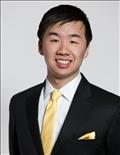
Johnny Hu
- Alumni
- United States
- 2011 MPhil Biological Science
- Darwin College
PhD Student in Biological and Biomedical Sciences at Harvard University. Working on developing new genome editing technologies in Professor David Liu's and Professor George Church's lab.
Sabrina Hu
- Scholar
- United States
- 2023 PhD Chemistry
- Queens' College
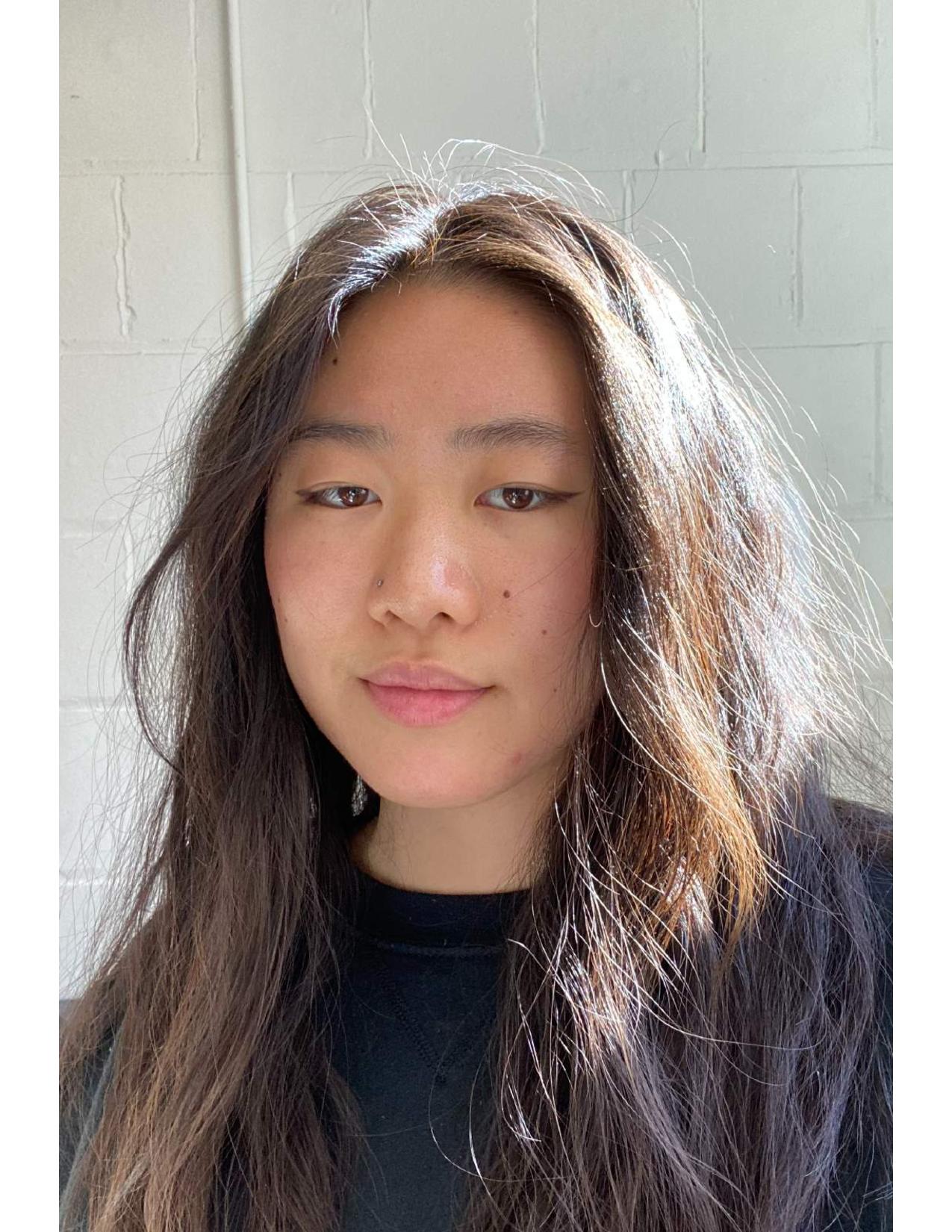
Sabrina Hu
- Scholar
- United States
- 2023 PhD Chemistry
- Queens' College
Growing up in Houston, Texas, I experienced and saw firsthand the destructive impacts of climate change as hurricanes increased in both frequency and severity over only the last decade. While attending Washington University in St. Louis, I found myself drawn to chemistry not only because of its unique way of understanding our world, but also because of its unmatched ability to drive technological innovation, better the lives of others, and protect our natural environment. During my PhD in Chemistry, I will focus on synthesizing and applying a particular class of supramolecular cages. These complex architectures can utilize host-guest chemistry in a variety of applications related to climate change mitigation and adaptation, from providing a greener way to perform industrial chemical separations to solar-driven desalination. Additionally, I hope to use my scientific background to contribute to climate policy in the ongoing effort to address the complicated, interdisciplinary issue of climate change and its effects. I am honored to join the Gates Cambridge community, comprised of people who are all dedicating their studies to improving the world for both our generation and those that come after us.
Previous Education
Washington University Chemistry 2023
Tiancheng Hu
- Alumni
- China
- 2022 PhD Computation, Cognition and Language
- Wolfson College

Tiancheng Hu
- Alumni
- China
- 2022 PhD Computation, Cognition and Language
- Wolfson College
I was born and raised in the beautiful city of Nanjing, China. I was then fortunate to be able to study electrical engineering at the University of Texas at Dallas. There, in the second half of my bachelor's studies, I was introduced to the world of machine learning and became amazed by its potential in improving our society in a large variety of application areas. I worked on the computational modeling of driver visual attention which could help reduce car accidents caused by driver distraction. Afterward, I went on to pursue a master's degree in Electrical Engineering and Information Technology at ETH Zürich, where my interest in natural language processing started to grow. I worked on several projects including one on protest event extraction from newspaper data. In my PhD, I plan to work on natural language processing and computational social science. I am interested in building and applying computational methods to text data to learn about society.
Previous Education
Swiss Federal Institute of Technology Signal Processing and ML 2022
University of Texas Dallas Electrical Engineering 2020
Links
https://tiancheng.hu
https://www.linkedin.com/in/tiancheng-hu-ai
Xiaobing Hu
- Alumni
- China
- 2002 PhD Materials Science and Metallurgy
- Downing College
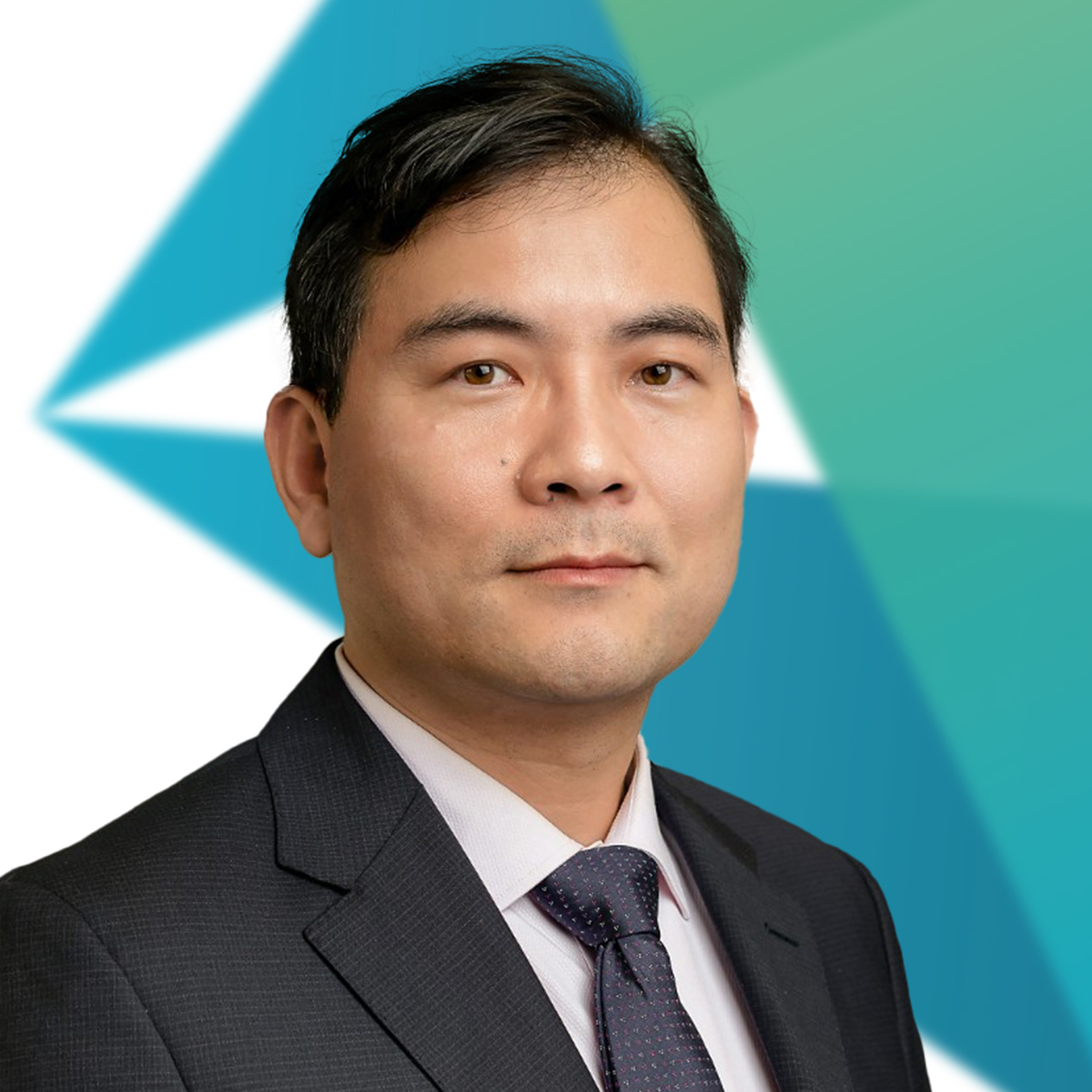
Xiaobing Hu
- Alumni
- China
- 2002 PhD Materials Science and Metallurgy
- Downing College
Dr. Xiaobing Hu is Head of Applied Solutions group in Hexagon's Manufacturing Intelligence division. As a Gates Scholar, he obtained his PhD degree in Materials Science from University of Cambridge, UK, in 2006. He also gained his Bachelor’s and Master’s degrees from Tsinghua University, China (in Materials Science & Engineering; Computer Science).
Previous Education
Tsinghua University BEng, Comp Tech and Apps, BEng, Mat Sci & Eng, MSc, Mat Sci & Eng 2002
Tsinghua University
Yang Hu
- Alumni
- China
- 2011 PhD Sociology
- Queens' College
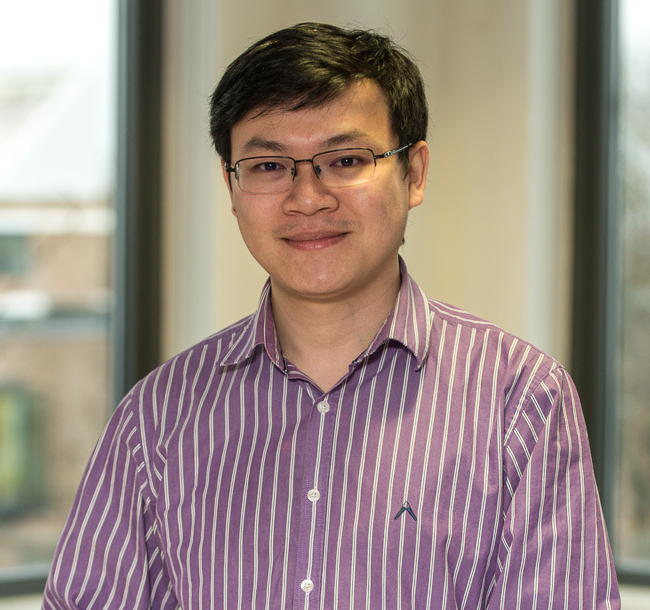
Yang Hu
- Alumni
- China
- 2011 PhD Sociology
- Queens' College
Yang Hu (he/him/his) is Associate Professor in Sociology at UCL Social Research Institute (2025–), where he also leads the newly launched MSc Sociology (+ Data Science | Social Inequalities | Childhood and Children's Rights MA). Yang is a member of the UK 2029 REF (Research Excellence Framework) sub-panel for Sociology. He is co-director of the Early Career Fellowship Program at the Work and Family Researchers Network (2024–). He is an editorial board member of the Journal of Marriage and Family (2020–) and Sociology Compass (2020–), and previously Sociology (2020–2022). He is also a member of the UNESCO Inclusive Policy Lab (2023–). Yang has been named in the Stanford-Elsevier World's Top 2% Scientists list for citations since 2022. Before joining UCL, Yang was Professor of Global Sociology (2022–2025), Associate Professor (2019–2022) and Assistant Professor (2016–2019) at Lancaster University, UK, where he remains an honorary fellow at the Lancaster University China Centre. Yang's leadership in global digital innovation and international partnerships was recognised through two University Staff Awards ("International Impact of the Year") and one Faculty of Arts and Social Sciences Dean's Staff Award at Lancaster University. Yang's research examines family and work changes and inequalities in a global context, including: Intersectional inequalities in family and work lives across the lines of gender, sexuality, ethnicity/race, age, migrant status, and social class. The implications of digitalisation and AI (artificial intelligence) for family and work lives and inequalities. The role of crises (e.g. COVID-19 pandemic and natural disasters) in reproducing existing and giving rise to new forms of intersectional inequalities in family and work lives. Yang takes two approaches to the "global" in his research – the first features a cross-national comparative scope and the second focuses on transnational mobilities. His recent research has been published in journals such as Nature Human Behaviour, Gender & Society, Demography, Journal of Marriage and Family, and European Sociological Review, British Journal of Sociology, among others. His research has frequently been recognised through international awards and most-read/cited status. Yang's research has received funding (> £1.5 million) from the UKRI/ESRC (UK), SSHRC (Canada), British Academy (UK), HEFCE (UK), and Nuffield Foundation (UK). He is a member of the ESRC (UK) Peer Review College, and he regularly serves as a panel member/reviewer for international funding bodies, including NWO (Netherlands), ERC (Europe), SSHRC (Canada), and SNSF (Switzerland). Yang was an early career fellow at the Work and Family Researchers Network (2018–2019). He obtained his MPhil and PhD (with no corrections) in Sociology as a Gates Scholar from the University of Cambridge (Queens’ College, October 2015), and his BA from Zhejiang University, China (2010).
Previous Education
University of Cambridge MPhil in Soiciology
Zhejiang University B.A. in British Literature and Linguistics
Links
Yan Huang
- Alumni
- China
- 2007 PhD Physics
- St John's College
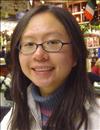
Yan Huang
- Alumni
- China
- 2007 PhD Physics
- St John's College
I am interested in studying interfaces between biological and abiological systems, and methods to improve the interface compatibility. Particular emphasis is placed on developing bio-compatible nanomaterial-protein hybrids to monitor the changing electronic interactions inside naturally-occurring photosynthetic organisms, and furthermore, to gain better understanding in the material structures adapted by the constituting molecular aggregates. The ultimate research aim is to design biomimetic synthetic solar cells and light-harvesting devices, and explore the potential of directly extracting electricity from renewable, abundant sources of plants, algae and cyanobacteria. Please visit my research webpage: http://www.bss.phy.cam.ac.uk/~yysh2
Links
Yu Huang
- Scholar
- China
- 2025 PhD Earth Sciences
- King's College
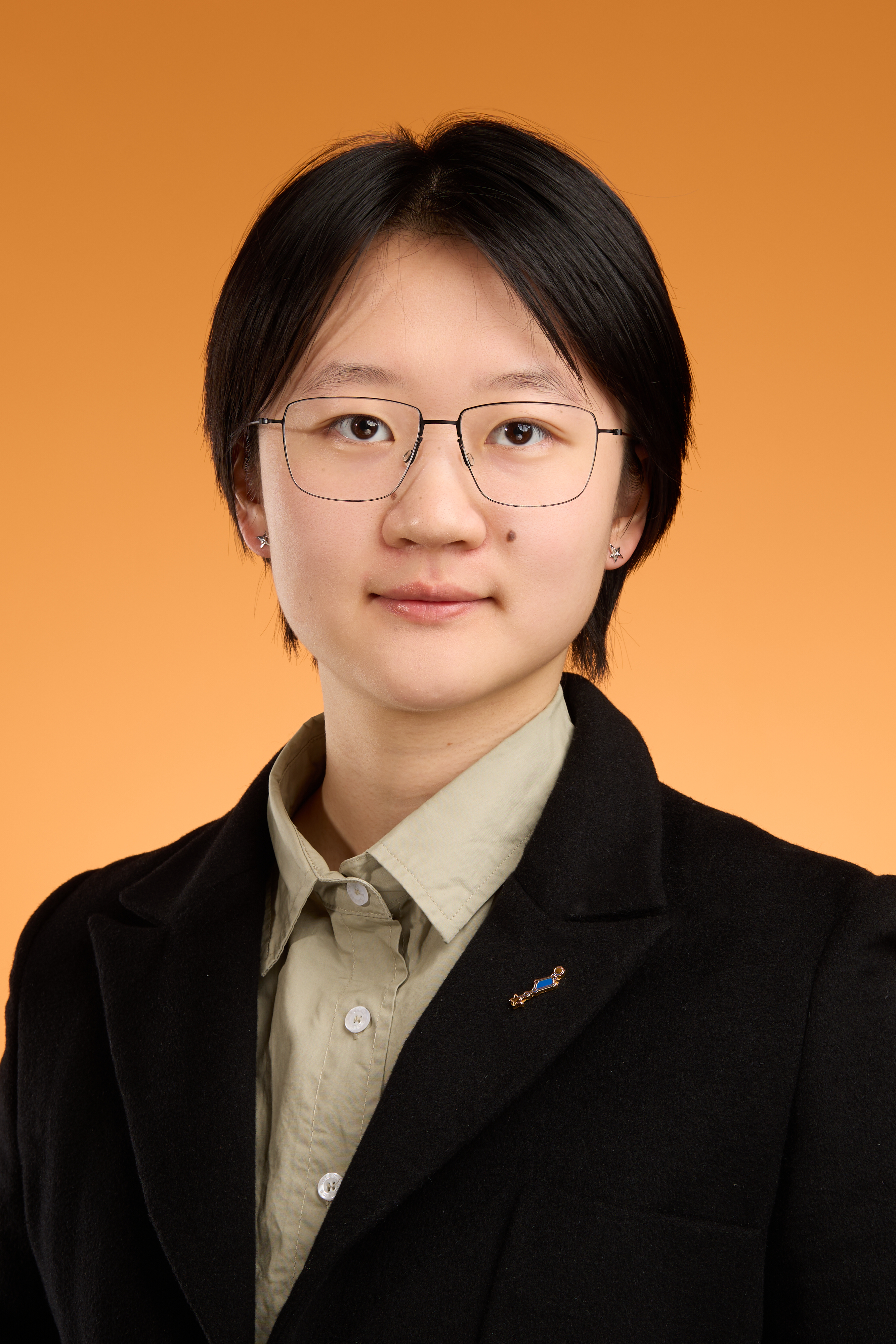
Yu Huang
- Scholar
- China
- 2025 PhD Earth Sciences
- King's College
I am intrigued by different possible worlds recorded in the geological archives of the Quaternary. My research explores paleoclimate dynamics relevant to past and future human-environment interactions. During my undergraduate studies in Cambridge Geography, I reconstructed rapid changes in deep-sea current speed during the last deglaciation using marine sediment cores. Subsequently, I was awarded the EFG scholarship to pursue an MPhil in Quantitative Climate and Environmental Science, where I worked on Asian monsoon dynamics during the last interglacial period using cave speleothem records and isotope-enabled Earth System Models. My PhD research uses Antarctic and Greenland ice cores to constrain the interglacial evolution of methane, exploring the role of ancient agriculture in changing global environments. Besides my academic work, I paint watercolor and ink landscapes of the places I visit during fieldwork.
Previous Education
University of Cambridge Geography
University of Cambridge Quant. Clim. and Env. Sci.
Yuru Huang
- Alumni
- China
- 2020 PhD Medical Science @ MRC Epidemiology Unit
- Downing College

Yuru Huang
- Alumni
- China
- 2020 PhD Medical Science @ MRC Epidemiology Unit
- Downing College
I grew up in Quzhou, China and received my bachelor's in Biotechnology from Sun-Yat Sen University. I went on to Johns Hopkins University for my Master's in Epidemiology, and have worked as a Staff Fellow at the U.S. Food and Drug Administration (FDA)'s Center for Food Safety and Applied Nutrition for the past three years. My work at the FDA has shown me the remarkable impact of robust science and the importance of reliable and comprehensive food supply data. I am interested in leveraging my data science skills to support food and nutrition research that can improve population health outcomes. My recent research project used Twitter data to construct local neighborhood food environments, which provides real-time information on food deserts and informs community programs. At Cambridge, my goal is to establish a longitudinal UK restaurant database that can monitor the restaurant food supply and support public policy. I firmly believe that better data leads to better research, and better research leads to better policy and health practice. Together, we can combat the rising prevalence of obesity and diet-related cancers by creating a healthier food environment.
Previous Education
Johns Hopkins University Epidemiology 2016
Zhongshan (Sun Yatsen) University Biotechnology 2014
Franz Huber
- Alumni
- Austria
- 2006 PhD Geography
- St John's College
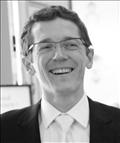
Franz Huber
- Alumni
- Austria
- 2006 PhD Geography
- St John's College
My research at Cambridge focused on the role of personal networks on knowledge flows and regional economic development. I investigated how personal networks affect innovative firms and regional economic development. The community of the Gates Scholars represents a great opportunity to discuss intellectual and practical problems in a truly international perspective. After an ESRC-funded postdoc position at the Open University Business School I become Lecturer, then Senior Lecturer and Director of a Centre for Innovation and Entreprise at Southampton Business School. I am currently Professor of Innovation Management at Seeburg Castle University in Austria. I remain affiliated with Southampton as a Visiting Fellow. Furthermore, I am a Senior Research Associate at the Stavanger Centre for Innovation Research (Norway), and I am an External Examiner at Imperial College Business School .
John Huber
- Alumni
- United States
- 2017 MPhil Veterinary Science
- Churchill College
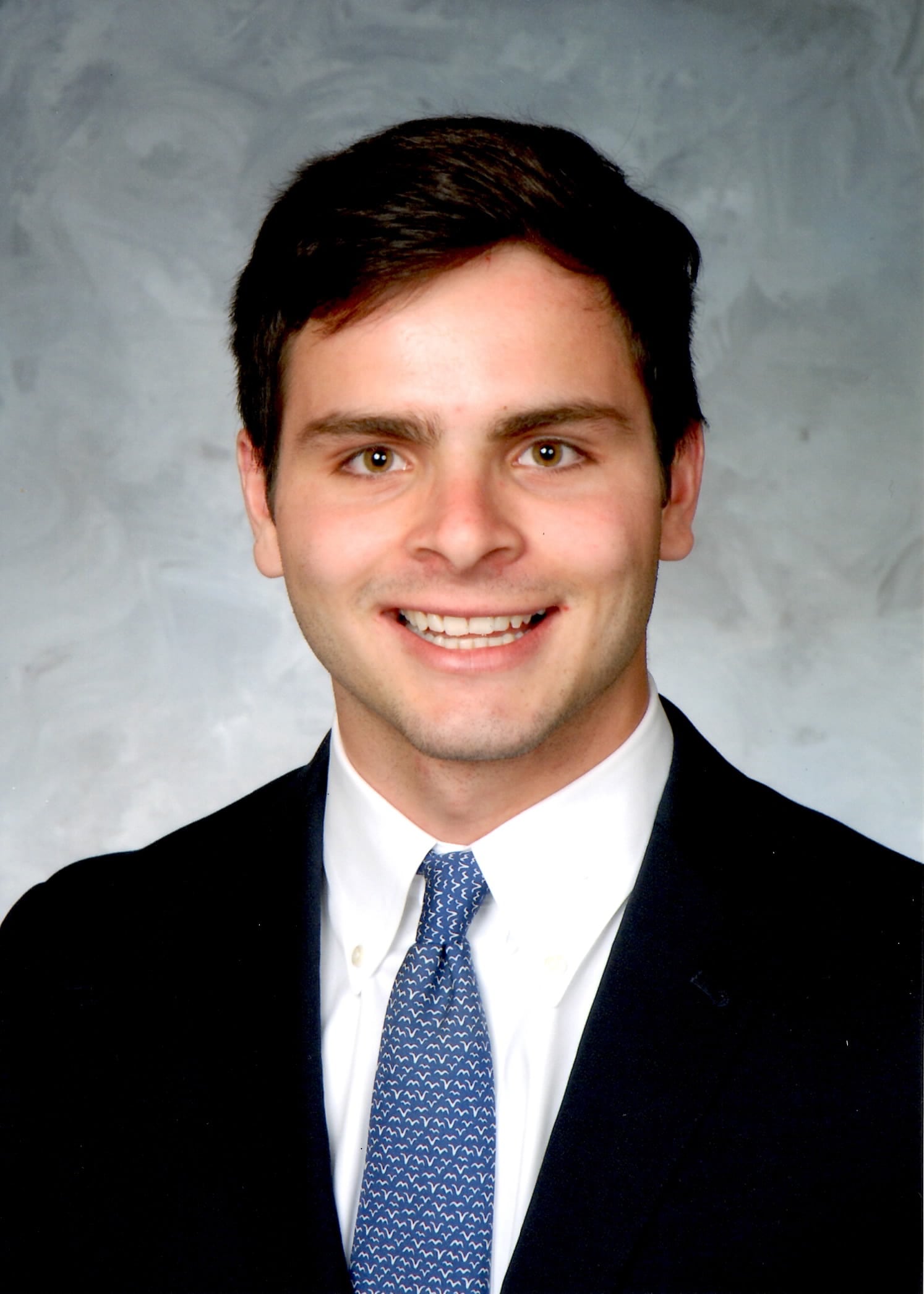
John Huber
- Alumni
- United States
- 2017 MPhil Veterinary Science
- Churchill College
Originally from Gainesville, Florida, I will graduate from the University of Notre Dame in May 2017 with a degree in Applied and Computational Mathematics and Statistics. During my undergraduate education, I developed a strong passion for infectious disease research, which I consider the intersection of my interests in global health, mathematics, and social justice. To date, my research has focused on constructing mathematical models for the transmission of mosquito-borne pathogens, principally malaria and dengue. At Cambridge, I will broaden my research interests by applying mathematical and statistical methods to capture heterogeneity in bacterial division rates. This project will expand our understanding of how antimicrobial resistance arises from slow-replicating bacteria in vivo. At a time when drug resistance is rapidly outpacing the discovery of new antibiotics, I am excited to have the opportunity to contribute to the body of research on such a time-sensitive matter. I feel honoured to join the Gates Cambridge community and look forward to an enriching year at Cambridge in the Department of Veterinary Medicine.
Previous Education
University of Notre Dame
Madeline Huberth
- Alumni
- United States
- 2012 MPhil Music Studies
- Darwin College
Madeline Huberth
- Alumni
- United States
- 2012 MPhil Music Studies
- Darwin College
I grew up in Monroe, New York. My research was in music performance and perception, and I recently wrapped up my PhD at the Center for Computer Research in Music and Acoustics (CCRMA) at Stanford, and am at YouTube/Google as a Quantitative UX Researcher in the Bay Area








